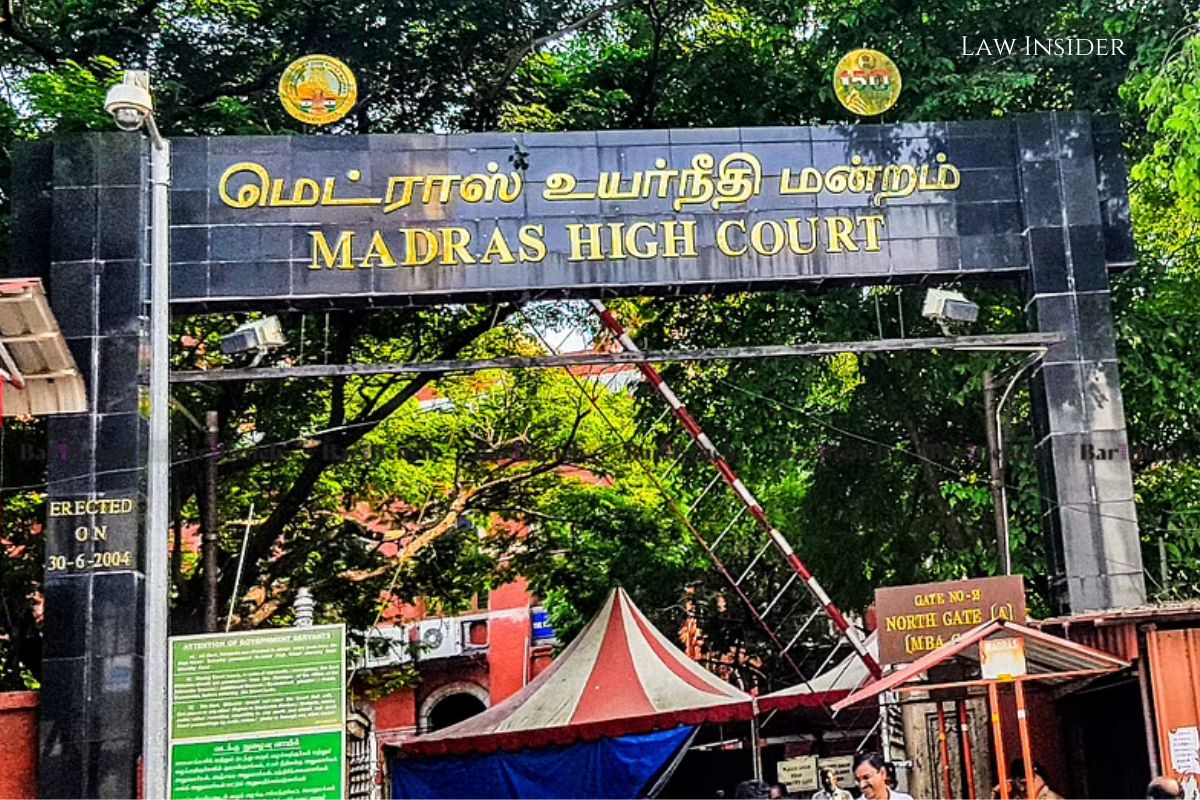Aastha Thakur
Published on: 10 October, 2022 at 09:22 IST
The Madras High Court recently framed certain principles under Section 119 of the Indian Evidence Act for the examination of witnesses who can’t speak due to disability.
As per Section 119 of the Evidence Act, states that if a witness cannot speak, in such cases the evidence in court can be given in writing or by signs made in open court, such evidence will be presumed to be oral evidence.
The proviso to Section 119 of the IEA further incorporates that if the witness is unable to speak, then the court has the option to appoint an interpreter or a special educator to record the statement, and such a statement shall be video-recorded.
The bench led by Justice Sunder Mohan, keeping the provision in mind, laid down certain principles governing the same:
- The endeavour of the Court must be to record the evidence, by giving questions in writing and seeking answers in writing, if the witness is able to read and write. Only if the witness is unable to read and write, the courts should record the evidence by signs.
- If the evidence is recorded by signs, the view of the Courts, (prior to amendment) was that the signs must be recorded as such and there should not be any interpretation of the signs. However, the Apex court has, in a Judgment in the case of Darshan Singh, held that an interpreter is necessary while recording the evidence of witnesses who give evidence by signs. The legislature thought it fit to make it mandatory for the Courts to take the assistance of an interpreter and videograph such evidence, in line with the pronouncements of the Hon’ble Apex court.
- The meaning of the word ‘’unable to communicate verbally’’ in the proviso to Section 119 of the Indian Evidence Act means unable to communicate in writing and can communicate only through signs. It is for those categories of persons who are unable to speak and can’t communicate in writing that the proviso would apply. As per the proviso, the Courts shall take the assistance of the interpreter and such recording of such statement shall be video graphed.
While clarifying the third point, the Court cited the case of Mariyadoss vs. State by Inspector of Police (2014) which held that the trial courts should get a signed non-disclosure agreement from videographer, that he will not disclose anything to anyone regarding proceedings as well as not retain a duplicate copy of same.
The court, while giving direction, explicitly mentioned that Section 119 of the Indian Evidence Court applies only to such witnesses who give their evidence through sign language; and where the witness is only able to communicate through signs, it is mandatory to take the aid of an interpreter and record such a statement by way of videography.
“ One may note that though the main part of Section 119 of the Indian Evidence Act speaks about witness who is unable to speak, the proviso that was incorporated in the year 2013 states about a witness who is unable to communicate verbally. As per section 119, if the witness is unable to speak, he may give evidence by writing or by signs.”
“But, such writing must be written and the signs made in open Court and the evidence so given shall be deemed to be oral evidence. Since the language employed in the main part of the Section and in the proviso are different, they do not obviously convey the same meaning. A person can verbally communicate even if he is unable to speak. The Black’s Law dictionary defines ‘’ Verbal, adj.(15c) 1. Of, relating to, or expressed in words,’’
“Thus verbal communication in the context of Section 119 is by words in writing. Therefore, the proviso is applicable only to such category of persons who are unable to speak and unable to verbally communicate through writing. Therefore, it follows that it applies only to persons who give evidence by signs.”
Facts of the Case
The appellants were accused of causing injury to the victim’s significant body parts like the head and private areas (who was then 5 years of age and also suffered from speech and hearing impairment). Further, the appellant also used to poke the victim with needles as well as making a cat to attack her.
The appellant was convicted under Sections 307 and 502(ii) of the IPC by the trial court. He appealed in the High Court that the victim here suffers from speech and hearing impairment, and her statement in the court did not in any way disclose how the incident happened. The conduct of the trial is also shady as it is not clear how she gave her evidence.
It was thus argued in the plaint that the Trian Court had not followed the procedure prescribed under Section 119 of the Indian Evidence Act.
Decision of Court
The court, in the first instance, observed the sufferings of the victim and the trial court’s statement that the victim showed her injuries through her gestures. The court questions the veracity of these gestures interpreted by the court itself, in the absence of an interpreter or a special educator.
The court also noted that the IO appointed in this case also informed the court that the victim gave her statement with the help of an interpreter, but the prosecution never cross-examined the interpreter.
Hence, the Court concluded that the victim’s recorded statement is not admissible in a court of law as it violates Section 119 of the Indian Evidence Act. Still, if it is assumed that the recorded statement of the victim is in a proper manner, the question of credibility still arises.
Therefore, the High Court set aside the judgement of the Trial Court and the appellant was acquitted.

